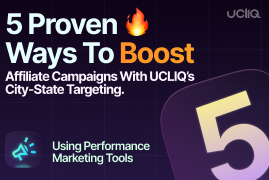The Most Common Q&As on CPA Marketing Scams in Under 3 Minutes
Is CPA marketing legit given the amount of fraud it generates? Yes. Let’s learn everything about CPA marketing scams in seconds to never let it ruin your career.
What Is CPA Marketing?
CPA (cost-per-action) marketing is a type of online advertising in which advertisers pay for specific actions taken by users, such as making a purchase or filling out a form.
While CPA marketing can be an effective way for businesses to acquire customers and for publishers to monetize their websites, it is highly exposed to fraud.
Is CPA Affiliate Marketing Legit?
Yes, CPA affiliate marketing is a legitimate business model where affiliates earn commissions for driving desired actions, such as leads or sales, for advertisers. However, like any industry, it’s essential to research reputable networks and adhere to ethical practices.
What Are the Main Types of CPA Marketing Scams?
There are several types of fraud that can occur in CPA marketing – bot traffic, fake leads, motivated traffic, fraudulent affiliates, and ad stacking. Sometimes, it’s pretty hard to tell whether the CPA lead is real or fake.
Bot traffic. Bot traffic is produced with specific software that generates non-monetizable clicks on ads, which can inflate advertising costs and reduce campaigns’ effectiveness.
Bot traffic is difficult to detect, as the bots are designed to mimic the behavior of real users.
Fake leads occur when a crooked publisher generates fake or fraudulent leads and submits them to the advertiser as genuine.
Motivated traffic is often called incentivized traffic, where users are paid or offered incentives to complete an action on the advertiser’s site.
Fraudulent affiliates’ registrations try to take advantage of partner marketing companies with low entry thresholds and payout limits.
Ad stacking is when multiple ads are placed on top of each other, making it difficult for users to distinguish between them.
This can lead to accidental clicks on ads and result in the advertiser paying for unnecessary clicks.
What Are the Consequences of CPA Marketing Scam Attacks?
All these types of fraud in CPA marketing can have serious consequences for networks, advertisers, and publishers.
Advertisers may end up paying for fake or fraudulent clicks, leading to a loss of money and a decrease in the effectiveness of their ad campaigns.
Publishers, if they are caught engaging in fraudulent activities, may face legal action and damage to their reputation.
But the biggest issues may touch CPA networks. Fraud can ruin relationships between them and advertisers or lead to cut-off rates, bans, money loss, and a bad reputation in the future.
What to Do to Resist Fraud in CPA Marketing?
In order to fight against fraud in CPA marketing, advertisers and networks can take several approaches:
1. Slightly mitigate the consequences of malicious activity (this means neither detecting fraud nor preventing it).
Fraud mitigation implies checking a conversion for fraud markers. If such are found, a crooked publisher isn’t paid for it, even though the conversion has already occurred.
2. Detect and prevent CPA scam with specific fraud detection software that can identify and filter out fake or fraudulent clicks.
This software can also carefully monitor ad campaigns and track their results to identify any unusual patterns or spikes in traffic, as well as verify the authenticity of leads and use strict quality control measures to ensure that all leads are legitimate.
In addition to these measures, working with reputable tech providers is crucial. These providers can guarantee additional fraud protection, provide timely updates, and ensure that the CPA marketing process is transparent and legitimate.
Final Tip
Overall, CPA marketing scams is a serious issue that can have negative consequences for all parties. By taking steps to prevent and detect fraud, businesses can protect themselves and ensure the effectiveness of their ad campaigns.



